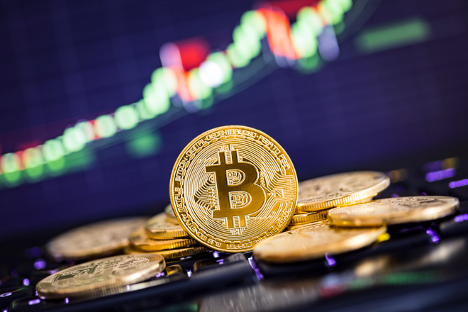Back in December 2017, when Bitcoin had surged to more than $16,000, I wrote that the only people who should be “investing” in cryptocurrencies were those who could afford to speculate (and potentially lose).
I have never been on board with the arguments in support of cryptocurrencies. Cryptos are made-up assets worth only what the next person will pay for them.
In some ways, they remind me of gold – except gold, at least, is a real thing that has industrial uses and value as jewelry.
Also like with gold, there is no way of valuing crypto.
Supporters will tell you that as governments create trillions of dollars, euros and yen, the finite supply of gold and crypto make them more valuable…
Then why haven’t gold and crypto steadily risen over the years?
While governments’ currency printing presses have been in overdrive during the pandemic, it’s not like they weren’t printing money over the past decade.
Yet gold and crypto have gone up and down like any other speculative asset…
And today, Bitcoin is back on investors’ radars as the price surges past $12,000, up more than double from its March lows.
It’s time to take a second look…
The Supposed Advantages
1. Bitcoin and its peers were supposed to be alternatives to government currency.
Back in 2017, several big companies, like Expedia, Overstock.com and Dish Network, started to accept Bitcoin as payment.
Expedia stopped less than a year later. Dish and Overstock continue to accept the cryptocurrency as payment, and now AT&T and Microsoft accept it as well.
Yet while a few big names have accepted them, Bitcoin and other cryptocurrencies are hardly useful as a method of payment for most transactions.
2. Another supposed advantage of crypto is the privacy factor.
The intention was that transactions could be done anonymously – but today, that argument is basically invalid. Technology exists to determine who is using a specific cryptocurrency and when.
Special counsel Robert Mueller, in his investigation into Russia’s interference in the 2016 U.S. election, traced Bitcoin transactions back to Russian operatives. And the Russian government is also using technology to track Bitcoin users and fight cybercrime.
The two main arguments in favor of Bitcoin – that it is an alternative currency and that it is completely private – don’t hold up.
That means if you’re buying Bitcoin as an investment, either you believe those things are going to meaningfully change or you are speculating.
It’s Time to Go Back to the Basics
Compare Bitcoin with stocks and bonds…
While stocks and bonds can wildly fluctuate (and are hardly perfect investment vehicles), there are numerous ways to determine their value.
You can analyze cash flows (both present and future), compare price-to-earnings ratios, look at dividend yields, compare expected returns with yields on risk-free Treasurys, etc.
How do you determine the value of Bitcoin?
You can’t. That’s how.
There’s nothing wrong with owning some bitcoin and seeing where it goes… or placing a bet that it will go higher…
Just like there’s nothing wrong with going to a casino and putting chips on black or betting on a horse at the track if you can afford to lose the money should the bet not work out.
But don’t mistake Bitcoin for a store of value.
In late 2017, Bitcoin was supposed to take the world by storm. Nothing has changed since then. It’s still just a make-believe asset.
Good investing,
Marc
